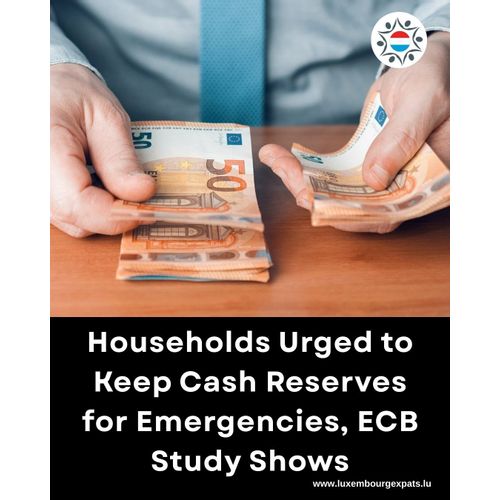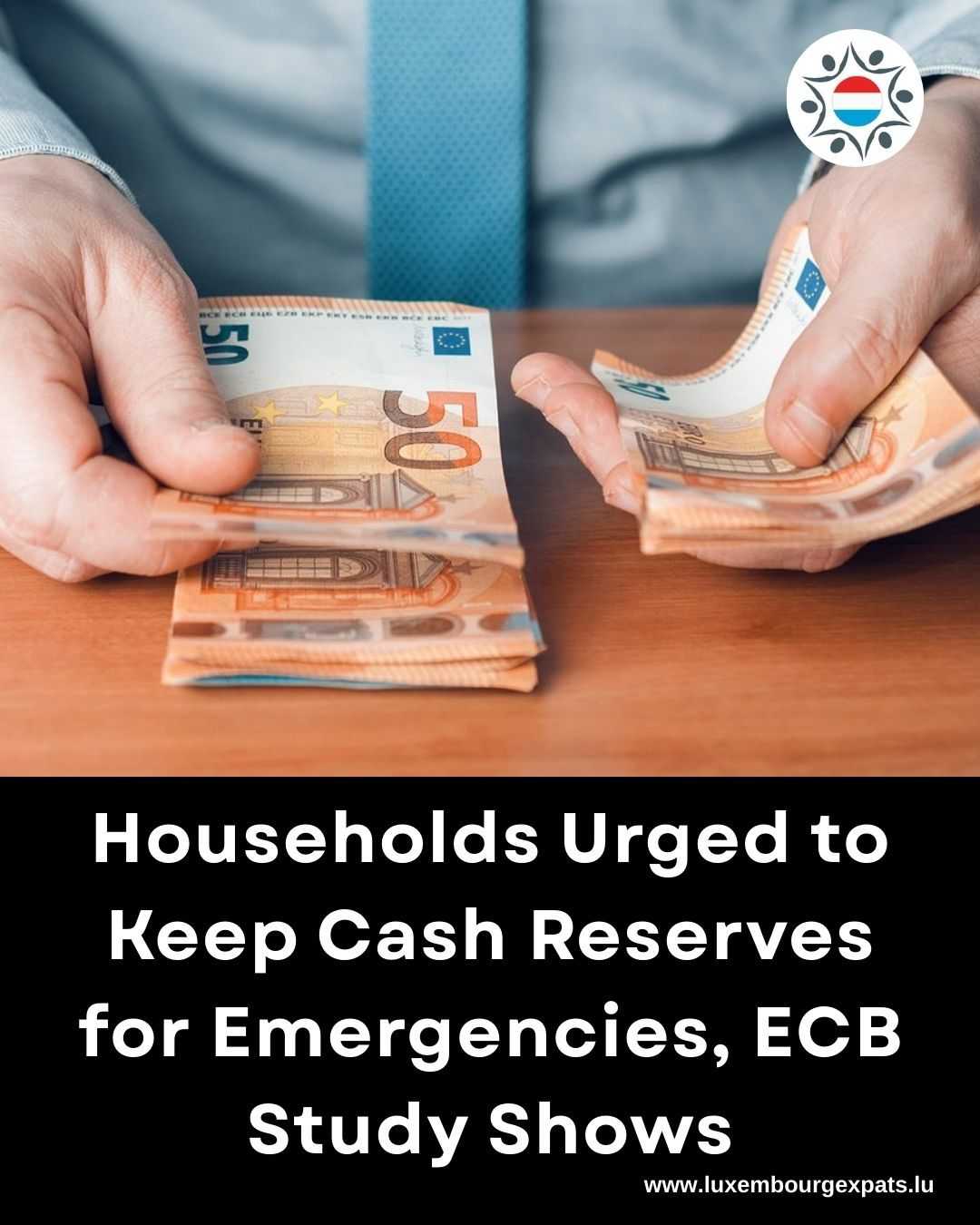Households Urged to Keep Cash Reserves for Emergencies, ECB Study Shows
LuxembourgPosted on 27 September 2025 by Team · 2 min readHouseholds in Luxembourg and across Europe are being encouraged to keep cash reserves at home for emergencies, following a new study by the European Central Bank (ECB) that highlights the importance of physical money during crises. The research shows that demand for cash rises sharply in times of financial turmoil, conflict, blackouts, or pandemics, underlining its role as both a reliable store of value and a resilient means of payment.
Several countries, including the Netherlands, Austria, and Finland, already recommend that households maintain enough cash to cover basic expenses for up to 72 hours, with suggested amounts ranging from €70 to €100 per household member. Finland is also experimenting with “disruption-proof” ATMs to ensure access to cash during emergencies.
The ECB study examined recent crises to illustrate this pattern. During the Covid-19 pandemic, households increased cash holdings as a precaution against uncertainty. Russia’s full-scale invasion of Ukraine prompted immediate spikes in local cash withdrawals near conflict zones. The Iberian blackout in April 2025 highlighted the importance of cash when digital systems fail, while Greece’s sovereign debt crisis demonstrated repeated surges in demand amid political and financial instability. These examples consistently show that people turn to physical currency in moments of acute stress, emphasizing its crucial role beyond everyday transactions.
The ECB stresses that access to cash is a matter of national preparedness. Central banks and commercial providers are encouraged to maintain sufficient cash stocks, develop robust contingency plans, and anticipate sudden spikes in demand during rare but high-impact crises. The study notes that cash, as the only central bank liability directly available to all, plays a key role in supporting economic stability and public confidence, especially when it is most needed.
In Luxembourg, authorities have long promoted emergency preparedness, advising citizens to assemble kits that ensure self-sufficiency for at least three days. Recommendations typically include essentials such as food, water, torches, cash, and copies of important documents. In emergencies, real-time alerts are issued through mobile systems. A 2024 Eurobarometer survey found that nearly half of Luxembourg residents feel inadequately prepared for local emergencies, while a majority seek clearer guidance to strengthen their readiness.
Keep calm and carry cash: lessons on the unique role of physical currency across four crises
I am your contact
Team
Chat








